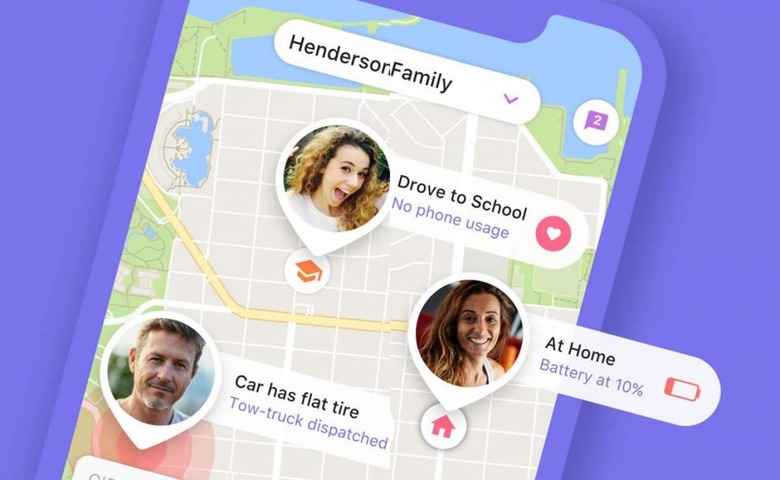Tile Tracker Prospective Buyer Life360 Accused Of Selling Location Data
Many people who have caught a whiff of the many privacy issues in this digital age may presume that it all revolves around social media. The rather horrifying truth is that almost anything about a person that can be transmitted in a digital manner can be used to create a profile of that person, often for targeted marketing purposes. That especially includes the places you've been to, which is why location tracking has been a very thorny subject as far as privacy issues go. That's why it's a bit worrying that the popular Bluetooth tracker Tile might be acquired by a company that is now allegedly violating its own users' privacy, which is ironic given the nature of Life360's business.READ: After trying Apple's AirTag I can see why Tile is furious
Life360 might not be a familiar name to many people, but it has built a reputation around helping families keep track of one another, often with the goal of ensuring their safety. The app comes in handy in making sure kids are where they should be or that family members can send SOS messages in an emergency. These features obviously require some form of location tracking as well as some expectations of privacy.
A lengthy report from The Markup, however, casts some doubt on the latter. Former Life360 employees claim that the company basically sells the location data of its users to almost anyone for the right price. It even partnered with the US Center for Disease Control and Prevention (CDC) to track "mobility trends" during the COVID-19 pandemic.

Most of Life360's customers, however, are involved in the advertising industry, providing insights for use with targeted advertising. Company founder and CEO Chris Hulls admits that they see this data as an important part of their business model but that they have privacy policies in place that prevent personally identifiable information (PII) from leaking to its clients. Life360 also credits this business model for allowing them to offer free life-saving services like driver safety.
Complicating matters, however, is Life360's intent to acquire Tile, one of the most popular brands of Bluetooth trackers in the market today. With Apple's AirTag and Samsung's SmartTag, that market has seen a renewed interest as well as more intense scrutiny from privacy advocates and regulators.
The report, while not exactly damning, could put a dent in Life360's plans. According to The Markup, Hulls said Life360 "doesn't have plans" to sell Tile tracker data.
Regardless of those privacy policies, the mere thought that Life360, a service aimed at families with kids, deals heavily in the data-selling business is enough to raise red flags. Without many external safeguards in place, there is almost no telling how much information its partners are able to glean from the precise location data that it sells. Security and privacy experts have argued that even anonymized data can still be used to build a profile of an individual for targeted advertising, which can then be used to harvest other information from other sources (via Nature).
